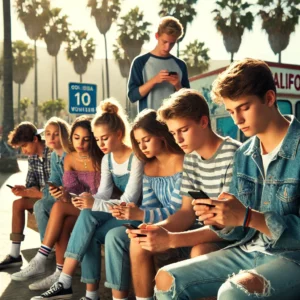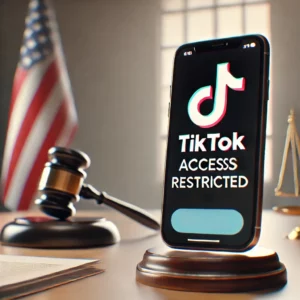Major Legislative Package Creates Strictest Social Media Rules in State History
Florida launched its most extensive digital rights reform package on January 1, 2025, banning social media access for children under 14 and requiring age verification for adult websites. House Bill 3, signed by Governor Ron DeSantis in March 2024, sparked immediate opposition from tech companies and privacy advocates. The legislative package also revamps voter registration security, streamlines building permits, and creates new protections for first responders.
5 Key Points
- HB 3 requires Facebook, Instagram, and TikTok to terminate all Florida accounts for users under 14
- Pornhub blocked Florida access after refusing to implement state-mandated age verification
- Florida Department of Highway Safety must obtain written confirmation for voter party changes
- Building permit applications now face mandatory 30-60-day processing deadlines
- Interference with first responders carries second-degree misdemeanor charges
How Does Florida’s Social Media Ban (HB 3) Protect Children?
House Bill 3, signed by Governor Ron DeSantis in March 2024, created unprecedented restrictions on social media access for Florida’s youth. The law requires platforms to prohibit children under 14 from creating new accounts and terminate existing accounts for underage users. Florida House Speaker Paul Renner (R-Palm Coast) championed the bill, citing social media platforms’ “addictive systems targeting children” and risks of predator communication. U.S. Surgeon General Vivek Murthy supported these measures in a New York Times opinion piece, recommending platforms display warning labels similar to cigarette packages.
The Florida Department of Legal Affairs gained authority to pursue legal action under the Florida Deceptive and Unfair Trade Practices Act, issue civil investigative demands, and enforce penalties for “knowing or reckless violations.” The law affects major platforms, including Facebook, Instagram, and TikTok.
How Did Adult Websites Respond to Florida’s Age Verification Requirements?
Pornhub’s parent company Aylo blocked all Florida access on January 1, 2025, joining similar blockades in 12 other states: Arkansas, Idaho, Indiana, Kansas, Kentucky, Louisiana, Montana, Mississippi, Nebraska, North Carolina, Texas, and Virginia. “Unfortunately, the way many jurisdictions worldwide, including Florida, have chosen to implement age verification is ineffective, haphazard, and dangerous,” Aylo stated in an email to Florida Politics.
The Free Speech Coalition filed a federal lawsuit on December 16, 2024, arguing that collecting user data creates security risks. “As recent high-profile data leaks have revealed, no web users are safe, and hackers are often able to exploit the slightest cracks in a website’s security,” the lawsuit states.
What Building Permit Changes Did HB 267 Create?
Florida House Bill 267 implemented mandatory processing deadlines for all building permits, responding to construction delays across the state. Local governments must follow these timelines after notifying permit applicants:
- 30 business days:
- Buildings less than 7,500 square feet
- Basic construction projects
- 60 business days:
- Buildings greater than 7,500 square feet
- Non-residential buildings under 25,000 square feet
- Multi-family residential structures of up to 50 units
- Site-plan approvals
- Subdivision plats
- Lot grading and site alterations
- 12 business days:
- Master building permits for site-specific building permits
- 10 business days:
- Single-family dwellings using the Community Development Block Grant Disaster Recovery Program
Beyond timelines, HB 267 implemented additional reforms:
- Local governments must establish auditing standards before reviewing private providers
- Residential building inspectors must complete an internship program for licensing
- Window, door, and garage door replacements meeting state standards no longer require sealed drawings
How Does Florida’s New First Responder Protection Law Work?
Senate Bill 184 established comprehensive protection for emergency service workers by creating specific criminal penalties for interference with their duties. The law defines “first responder” to include:
- Law enforcement officers
- Correctional probation officers
- Firefighters
- Emergency medical care providers
The legislation created three distinct violations, each carrying second-degree misdemeanor charges:
- Impeding or interfering with a first responder’s ability to perform their duty
- Making direct or indirect threats of physical harm to a first responder
- Engaging in harassment of any kind toward a first responder during duty performance
Conviction consequences include:
- Up to 60 days in jail
- Potential fines
- Criminal record affecting future employment
- Possible civil penalties
The law aims to address increasing incidents of emergency worker harassment and provides law enforcement with clear guidelines for arrest and prosecution.
What Changes Affect Florida Voter Registration?
House Bill 135 overhauled Florida’s voter registration system to prevent unauthorized party affiliation changes. The Florida Department of Highway Safety and Motor Vehicles (FLHSMV) must now:
- Obtain written confirmation before changing any voter’s party affiliation
- Provide detailed receipts documenting all registration changes
- Implement new information technology safeguards
- Maintain records of all party affiliation change requests
- Ensure technology updates don’t alter voter information without consent
The law creates exceptions for:
- First-time voter registration applicants
- Specific categories of registration changes requiring different documentation
- Emergency registration updates
FLHSMV must now:
- Document all party affiliation change requests
- Maintain detailed records of verification processes
- Provide written confirmation to voters
- Implement additional security measures to prevent unauthorized changes
The legislation responds to concerns about unauthorized party switches and strengthens Florida’s voter registration security measures heading into future elections.
FAQ
Q: What age can Florida children create social media accounts?
A: Children must be 14 or older to create social media accounts on platforms like Facebook, Instagram, and TikTok.
Q: Which adult websites are blocked in Florida?
A: Pornhub and other sites owned by Aylo have blocked access. Other adult sites must implement age verification or block access.
Q: How long do building permits take under the new law?
A: 30 business days for buildings under 7,500 square feet, 60 business days for larger structures.
Q: What happens if someone interferes with a first responder?
A: They face second-degree misdemeanor charges with up to 60 days in jail, potential fines, and a criminal record.
Q: How many states have similar adult website restrictions?
A: 12 states: Arkansas, Idaho, Indiana, Kansas, Kentucky, Louisiana, Montana, Mississippi, Nebraska, North Carolina, Texas, and Virginia.
Citations
Geisel, H. (January 1, 2025). These new Florida laws are now in effect. Here’s how they will impact you. CBS Miami. https://www.cbsnews.com/amp/miami/news/new-florida-laws-2025/








